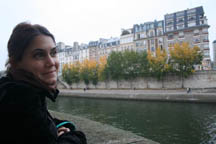Teaching Philosophy
From my experiences as a student and as a teacher in training, I have learned some things that I believe separate good teachers from the not so good ones. I will list here what I believe makes teachers good at what they do and what I will strive to incorporate in my teaching.
The Golden Rule of Teaching
The first thing a teacher needs to be aware of is that students might be just students to you, but they are some other people’s brothers/sisters, sons/daughters, grandsons/granddaughters, boyfriends/girlfriends, and friends. Although you focus on their student identities as a teacher, you should also keep in mind their other identities outside of school. As a teacher, one should remember that those people we refer to as “students” are unique individuals who are at the beginning stage of their adult lives as college students and are still in the process of growing up.
Connecting with Students
Especially in college education, teachers need to understand that they are working with adults and need to treat them that way. A teacher should make sure that the students feel that they are being taken seriously and being respected as adults. This will help students connect with the teacher on a personal and an academic level, establishing a rapport between the teacher and the students. Consequently, this rapport between the student and the teacher will be reflected in the students’ work. When I think back to my own educational experience, I remember those teachers who made an extra effort to connect with me, and how much that effort meant to me – personally and also in terms of the effort I put into their class. A teacher should make connecting with students one of the priorities of their teaching experience.
A teacher should try to understand students first, before trying to connect with them. A mistake I had done in the past was to criticize students who are not doing so well academically. To me, it seemed that it was the least you could do as a student - get good grades. But as I have grown older, I realize that being a student is only a part of an individual’s life and they should not be evaluated just on their academic successes or failures. Those friends who did not do so well in the “Introduction to Art History” now own their own advertising agencies, work as reporters or have great jobs they enjoy. I think a mistake teachers commonly make is to look down on students who get low grades in their classes. One needs to understand that academic success is just a portion of an individual’s life success.
A teacher needs to understand that not all students have high academic aspirations like becoming future Ph.D.s – most of them are probably people who want to succeed in the competitive media industry. A teacher needs to have a pragmatic approach to teaching – see students as people who will use the information they learn in school in their professional lives in the future. As a teacher, I think that one needs to achieve a balance between theoretical and practical information being taught to the students. One should try to make the information more applicable to real life, to the professional media settings, and easier for students to grasp, those students who want to be future Ph.D.s will put the extra effort to get your attention anyway and dive deeper into the theoretical aspects of the material.
Role of Experiences in Teaching
Students are not blank sheets of paper you can write on. Students are individuals with experiences and they bring those experiences to the classroom – this is inevitable. Whatever the topic is, including the students’ experiences in class discussions will help them get involved with what is going on, and secondly, make them realize that the information they are learning can be applied to their lives outside of the classroom, to actual job situations.
Experiences are also an integral part of the learning process. Experiential teaching methods should be used to get students involved and help them get some experience in their respective fields. A teacher should encourage students to apply the knowledge they learn in the classroom to actual work environments through internships, role modeling, service learning, field trips, and group projects. Students need to get their hands dirty to learn, and it is the role of teachers to create an open learning environment where students can share their experiences and also gain experience through out-of-class, hands-on learning opportunities.
